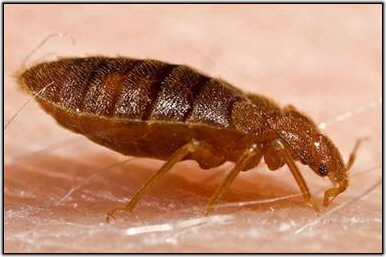New hope in the fight against bed bugs
Published Wednesday, November 21, 2012
TORONTO – Areas across Canada are facing a growing problem with bed bugs, with reports of infestations increasing year over year.
But new research from a team of Penn State scientists may offer hope in the increasingly difficult fight against the insects.
In cities including Toronto, Winnipeg and Edmonton local governments are grappling with controlling bed bugs, no easy feat considering how quickly bed bugs multiply and how easily they travel.
Bed bugs feed on human blood and can survive up to six months without feeding.
Chemical pesticides alone are not enough to eradicate the small biting insects and the use of over-the-counter pest control products are discouraged by public health groups due to possible dangerous side effects.
Researchers at Penn State studying the effects naturally occurring microorganisms have on the pests are reporting encouraging results.
Preliminary studies on the effects of Beauveria bassian, a natural fungus that causes diseases in insect populations, shows bed bugs exposed to the fungus became infected and died within five days.
Nina Jenkins, senior research associate in entomology at Penn State, and her team published the findings in the Journal of Invertebrate Pathology.
Jenkins noted an important part of their findings was that the infected insects carried the fungus back to other unexposed bed bugs, something which chemical pesticides cannot do.
“Bed bugs tend to be cryptic, and they’ll hide in the tiniest crevices,” said Jenkins. “They don’t just live in your bed. They hide behind light switches and power sockets and in between the cracks of the baseboard and underneath your carpet.”
Jenkins and her team will continue with their research and begin field work.
“It’s exciting, and it definitely works,” said Jenkins. “We’re working on the next step, and we have more funding to support these studies.”
More on bed bugs…
Bed bug infestations can cause a great deal of stress, financial burden and anxiety to those dealing with the problem.
The insects can enter a home on furniture or clothing. They feed at night and spend 90% of their time in hiding.
Bed bugs don’t only afflict low-income neighbourhoods, said Toronto-area exterminator Avery Hunsberger.
“People associate bed bug infestations with unclean, low-income housing, all the things that go along with that. But that is very inaccurate. We treat all walks of life. We’ve treated million-dollar condos and low-income housing and everything in between.”?
With files from Globalnews.ca’s Patrick Cain and Toronto Public Health
© Global News. A division of Shaw Media Inc., 2012.


